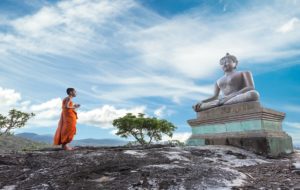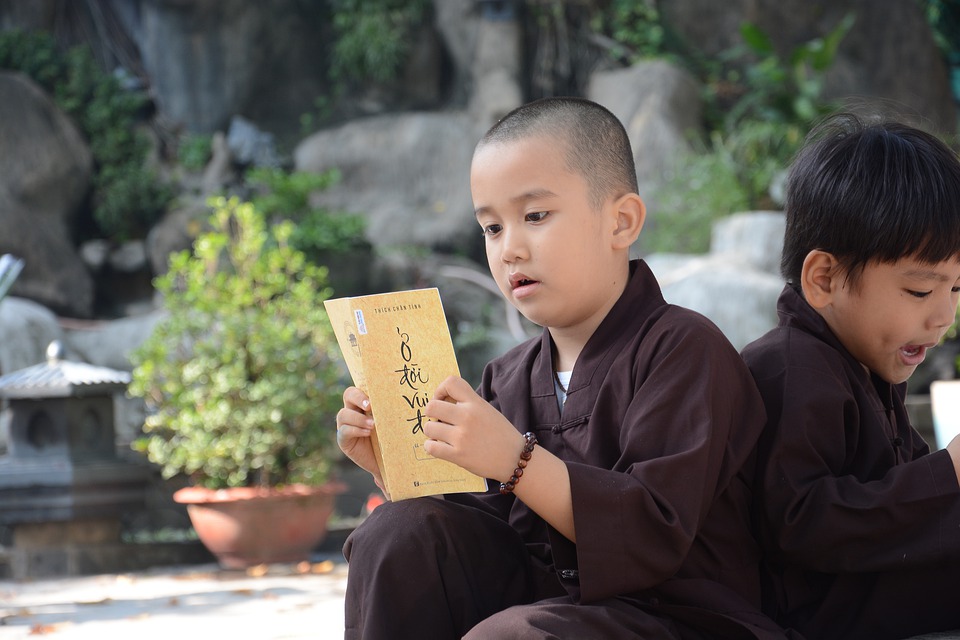In China, at the base of a mountain, an impoverished young man sat in meditation in front of his hut facing a great rushing river. A monk from the mountain monastery hiked down a long, steep path past the hut carrying two huge wooden basins to transport water from the river back up the path to the monastery. “Why do you sit in meditation every morning?” Asked the monk of the young man.
“Oh, honorable monk, I hope to become enlightened and avoid the pain of ‘dukkha’ (suffering or dissatisfaction).”
“I have heard it said that a wise man lives in the forest on the other side of the river,” the monk replied. “Perhaps, if you bring him your suffering he can help.” He then filled one water basin and balanced it on his head while he struggled hiking up the path carrying the other full basin in his arms. The poor young man watched this ritual day in and day out.
One early morning the monk appeared with his basins to find the young man feverishly gathering bamboo. “Why are you gathering bamboo?” he asked.
 “I am going to build a strong raft to ford the great river so that I may ask the wise man how to avoid dukkha.” Collecting bamboo, building and testing the water worthiness of numerous rafts, correcting errors and building new rafts took years. This procedure was noted each morning by the monk.
“I am going to build a strong raft to ford the great river so that I may ask the wise man how to avoid dukkha.” Collecting bamboo, building and testing the water worthiness of numerous rafts, correcting errors and building new rafts took years. This procedure was noted each morning by the monk.
Finally, one morning the poor man, gray in his autumn, left a note on the door of his hut by the river, “I have gone in search of enlightenment.” He pushed off on a raft constructed one piece at a time. Many days and nights passed before he landed on the other side.
Studying the forest with his eyes he could find no safe place to dock his raft, so, remembering the monk carrying his water basins, he balanced the raft on his head and went in search of the forest wise man.
Several moon cycles passed and one day the poor man came across an ancient gentleman sitting at the mouth of a cave.
“You must be the forest wise man. I have come to ask you how I may become enlightened and escape dukkha.”
“Is this side of the river shore not beautiful?” the wise man asked.
Pointer:
Ceaseless, holding still for no man, always true to itself the river teaches and sustains.
The poor man sees but is blind. The monk speaks but holds his tongue.
Discussion:
It takes a finger to point to the moon. However, having arrived, one must lose one’s arm to be free. Whatever it takes to reach the other shore, now, drop it!
Resolution:
“I like your shore fine. However, I have suffered a headache since I arrived.”
“Drop it!” the wise man shouted.
At this outburst the poor traveler lost his balance, his raft fell from atop his head, and immediately, the poor man was enlightened.





